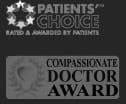By Kelly Theim Hurst, PhD
Sleepless nights can affect every part of our lives. Beyond feeling fatigued, they can cause irritability, stress, increased appetite, and overeating. Fortunately, there are many treatments that can help. As a psychologist, I specialize in behavioral approaches to insomnia and other sleep difficulties.
The tricky part is that sometimes – like with Chinese handcuffs – the harder we work at sleep, the more elusive it may become. That is, imagine trying to force yourself to sleep by repeating: “I’m going to force myself to sleep now!” Rather, a gentler, strategic approach includes easing into sleep, starting with adjusting our environments, our bodies, and our minds to be as conducive to sleep as possible.
Regarding environmental control, there are many steps we can take to set ourselves up for success, including keeping the bedroom dark, cool, and quiet, and “winding down” for sleep with an evening routine (which ideally does not include working, or any other activity involving stress and the light of a computer or smartphone). Alcohol, heavy meals, and caffeine also impact sleep for most people. Consider that everyone is different, too – watching TV in bed makes it hard for some people to fall asleep (and it disrupts the quality of sleep), but some people can set a timer and fall asleep quickly. For those who watch TV or use computers or smartphones before bed, consider using blue light-filtering glasses or computer settings to prevent the artificial light from affecting sleep hormones.
Physically, the body is not always ready for sleep when we want it to be. Relaxation and breathing exercises can help it along. These can be done on our own, or using an app or other audio guide (of which there are many available for free these days). Yoga or even some simple stretches can ease tension as well. Even if relaxation exercises don’t immediately help you to fall asleep, at least they tend to feel good and they’re something to do while you wait!
From the mental/cognitive side, nearly everyone has experienced how our thoughts can keep us up at night – thoughts about the events of today or tomorrow (everything from “Did that presentation go well?” to “How will I handle this in the meeting?”), thoughts about something you forgot or want to be sure to remember, fun thoughts (“Where should I go on vacation?”), or even thoughts about sleep itself (“I’ll never be able to function tomorrow if I don’t get some sleep! What time is it?”) The trouble is, there isn’t much effective problem-solving that we can do at 3 a.m. If you remember something you forgot to do, write it down, and it likely can wait until tomorrow. If you find yourself thinking about a conversation that didn’t go well, plan to think tomorrow about what, if anything, is the next step to resolve it (hopefully the other person is asleep if it’s the middle of the night!) If worrisome thoughts about sleep itself arise, you might try to challenge them by coming up with a more realistic thought, such as “I’ve had insomnia before and I was really tired the next day, but it was OK.” Lastly, a mindfulness approach can help, including observing and acknowledging thoughts as they arise and allowing them to pass (e.g., “My brain keeps going back there, and probably will again, but that’s OK”). This takes practice, but freeing yourself from needing to act on or change your thoughts, and simply allowing them to happen, can create space for more relaxing images that may help you drift off to sleep.
One condition that impairs sleep is sleep apnea – most commonly obstructive sleep apnea, where the airway is blocked during sleep, causing the individual to momentarily stop breathing. Although the consequences of sleep apnea can be serious (e.g., the fatigue and irritability mentioned above, along with increased risk for high blood pressure, cardiovascular disease, and stroke), again there is good news: there are effective treatments for sleep apnea. Your doctor may recommend a sleep study to diagnose sleep apnea or other sleep problems. Continuous positive airway pressure (CPAP) machines offer non-invasive treatment that is appropriate for many. Although they are not always comfortable at first, they have improved greatly over the years and offer life-changing relief for many with sleep apnea. If your doctor has prescribed a CPAP and you have had trouble acclimating to it, there are behavioral strategies that can help this process too (e.g., practice wearing the mask during the day while reading or watching TV).
Above all, remember that you don’t have to go it alone. Everyone has a “bad” night of sleep once in a while, but if insomnia or other sleep problems persist or are bothersome, consider talking to a provider at NCWW. We can help!









